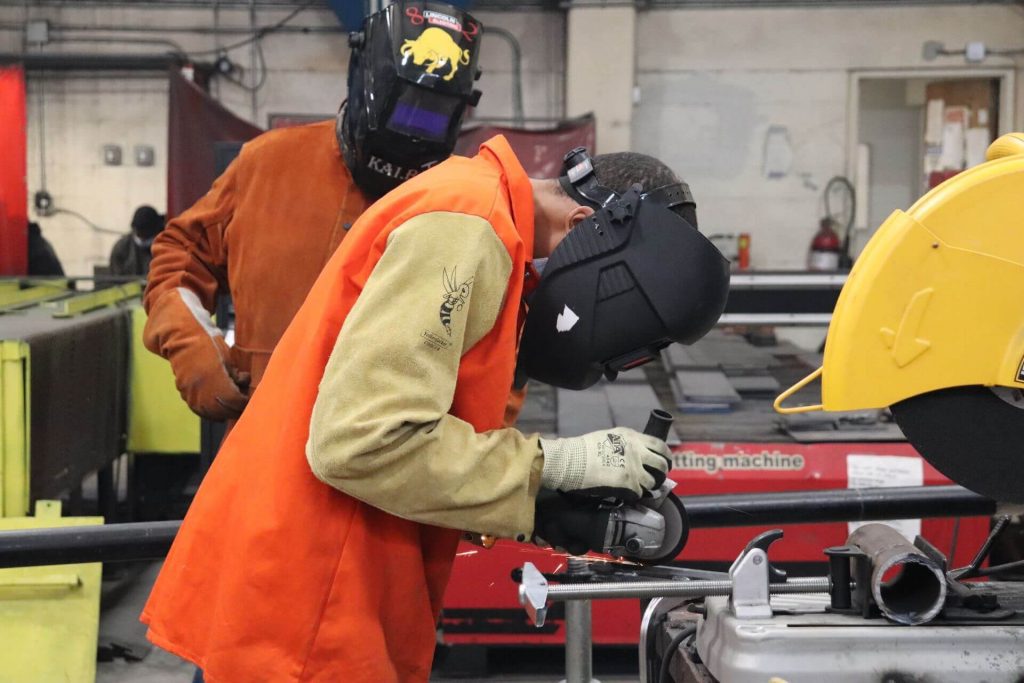A skilled tradesperson is vital to every aspect of our society and economy. Still, people are often reluctant to pursue trade jobs. Instead, they believe that a University or College education is the only path to success. This kind of thinking is misguided for trade jobs as there are many pathways to follow on the road to obtaining a career that fits you.
A hands-on career requires a hands-on education. Therefore, there is value to choosing an education for your trade where students can concentrate on getting hands-on training.

If you intend to enter a skilled trade industry, you will likely have to complete studying from technical schools. Besides, there are many skilled trade jobs in demand. Notwithstanding, one of the most appropriate ways to plan for your future career is to acquire your trade through hands-on training and practical experience.
In some careers, traditional education provides employees with sufficient knowledge to succeed. However, most skilled trade positions demand a lot of operational problems solving, frequently without the interest of a manual.
During your trade knowledge in a hands-on atmosphere, you join sincerely with materials and concepts. In addition, this method better equips you with obstacles you could confront while on the project.
Imagine attempting to learn to rewire a home or lay pipes from a book. In this plot, you would not have an excuse to touch and use the stuff yourself. Yet, when you engage in hands-on learning, you become accustomed to how materials look, feel, and function.
This skill can prove essential when working for trade jobs since the materials you use greatly influence the end outcome.
Studies on the efficiency of various teaching types show that hands-on training allows a higher student retention level than most other environments. For example, one study showed that students only remembered 20% of the information presented in lecture format, while students remembered 75% of the knowledge they acquired firsthand.
Indeed, each person learns separately. Interacting directly with materials and concepts drives to more vital practical ideas of the lessons. Part of this improved recognition results from the many training opportunities available during hands-on training. The more you prepare, the better you go at your future career path.
In a trade background, much of your learning happens from the experience of others. Accordingly, many hands-on learning hubs employ mentor or apprenticeship methods for students. These arrangements enable you to work with an expert in your domain and learn instantly from their experience.
Additionally, mentorships and apprenticeships usually lead to employment possibilities to make your future into a career in trades.
In many trade industries, poor job training raises protection risks. When you undergo hands-on training, you have the chance to work with your supplies in simulated real-world conditions. This controlled but practical learning atmosphere teaches operational safety.
This safety training is critical in industries with electricity, heavy machinery, and sensitive devices. Before enrolling in the workforce, learning these skills guards your physical safety, future employer’s business, and dormant customers’ homes and families.
As a working professional, you must have the ability to work as part of a team. In trade schools, you often engage team projects, discuss with instructors and peers, and rely on the sound experience of others.
Not only could you adhere to friends during hands-on training, but you could also meet them on trade jobs as coworkers. In addition, this networking can help you find reliable employment and practice working with people on a related career trajectory to yours.
Certainly, hands-on learning in a lab is not the single way to follow the skills you will need when working in the trades. Indeed, Philadelphia technical college might also have an online learning segment and allow you to practice what you discovered on your own time.
Many alumni who have taken such courses live a pretty fulfilling life in cities, including Allegheny West, Broad Street, Woodland Avenue, Cheltenham Avenue, Ogontz avenue. Once you bag an excellent senior-level position in such industries after years of experience, you can enjoy the competitive benefits!
At Philadelphia Technician Training Institute, you can receive hands-on career training for many trades in as little as one year. This vocational school will train you in your chosen skilled trade very well.
Read More: